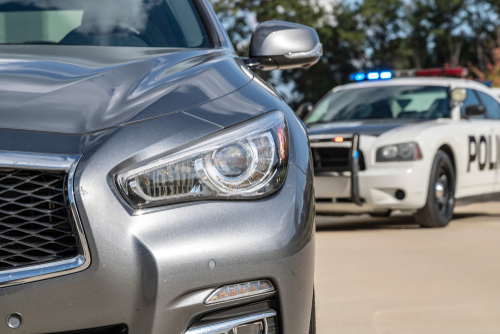It’s well known that if you’re pulled over, waved down, or come across a DUI checkpoint, if the officer smells alcohol on your breath, they are going to ask you some questions.
During a DWI stop in Asheville, NC, a police officer may ask you to submit a chemical analysis to see if you are inebriated. The evidence gathering usually entails blowing into a breathalyzer or other equipment to measure your Blood Alcohol Concentration (BAC).
Implied Consent
To have the right to drive in North Carolina, all drivers are deemed to have granted “implied consent” under N.C. Gen. Stat. 20-16.2(a). You have given law enforcement authorization to test your BAC through chemical analysis as a condition of being authorized to operate a car in North Carolina.
The concept behind “implied consent” legislation is that anybody who chooses to drive on public roads implicitly agrees to undergo a DUI test if requested by a police officer. On the other hand, a driver is only compelled to submit to testing if the asking officer has reasonable grounds to think the motorist was driving while intoxicated.
What Is Chemical Analysis?
A blood, breath, or urine test is commonly used in DUI chemical testing. Blood and breath tests, on the other hand, are the most prevalent. After a motorist has been apprehended, testing generally takes place in a police station or a medical facility. The arresting officer chooses which test the driver takes in most jurisdictions, while a few states allow drivers to pick.
Prosecutors frequently utilize chemical test findings to show a DUI in criminal court. Of course, if a motorist refuses to be tested, the prosecution will be unable to use this evidence.
Without chemical test findings, it might be difficult for a prosecution to show a “per se” DUI charge (one based on the amount of drugs or alcohol in the driver’s system). On the other hand, prosecutors are usually permitted to notify the jury of the defendant’s rejection. Even if no test results are available, a jury may be inclined to convict based on this information.
Can You Legally Decline a Chemical Analysis?
However, just because North Carolina law says you’ve provided your implied consent doesn’t mean you have to take a chemical test. A person may decline a chemical analysis under N.C. Gen. Stat. 20-16.2(a)(1). This right, however, is accompanied by a penalty. Regardless of the outcome of your DWI trial, if you refuse a chemical analysis, the DMV will immediately revoke your license for thirty days plus a minimum of one year. This denial is also admissible in court as evidence in your DWI case.
The minimum term of revocation when your driver’s license is revoked under N.C.G.S. 20-16.5(b) is either 30 or 45 days, depending on when you surrendered your driver’s license.
The minimum revocation time is 30 days if your driver’s license is surrendered within five working days after the revocation (usually the day you were charged).
The minimum revocation time is 30 days if your driver’s license is surrendered within five working days after the revocation (usually the day you were charged). If you do not submit your driver’s license within five (5) working days of the revocation, you will face a minimum revocation of 45 days from the day you surrender your driver’s license.
Furthermore, if you are facing a charge of driving under the influence or any implied consent violation, your driver’s license will be revoked permanently until the charges are resolved.
Does It Ever Make Sense to Decline a Chemical Analysis?
Although declining a chemical analysis leads to your driver’s license being revoked, it might be a strategic move to help your defense during your DWI trial. You avoid providing the prosecutor any concrete, scientific proof of any probable impairment by declining a chemical analysis. As a result, the prosecutor must depend on less reliable and more subjective intoxication evidence, such as the officer’s testimony, field sobriety test (FST) results, or the individual’s conduct and condition. Because these indications are up for interpretation and reasoning, they may lead to a higher likelihood of dismissed DWI charges.
Even if an individual refuses to take a chemical test, authorities may be permitted to coerce you in certain circumstances. A driver can be forced to take a blood test if an officer gets a warrant, even if they refuse. Furthermore, a person who is asleep is not regarded to have declined a test just because they cannot express any concerns. Due to previous legal judgments defining these acts, these scenarios are not deemed a breach of your constitutional rights.
Please contact our Asheville DUI lawyers for a free consultation if you have been charged with a DWI. We’ll fight your case with all of the resources we have at our disposal.




